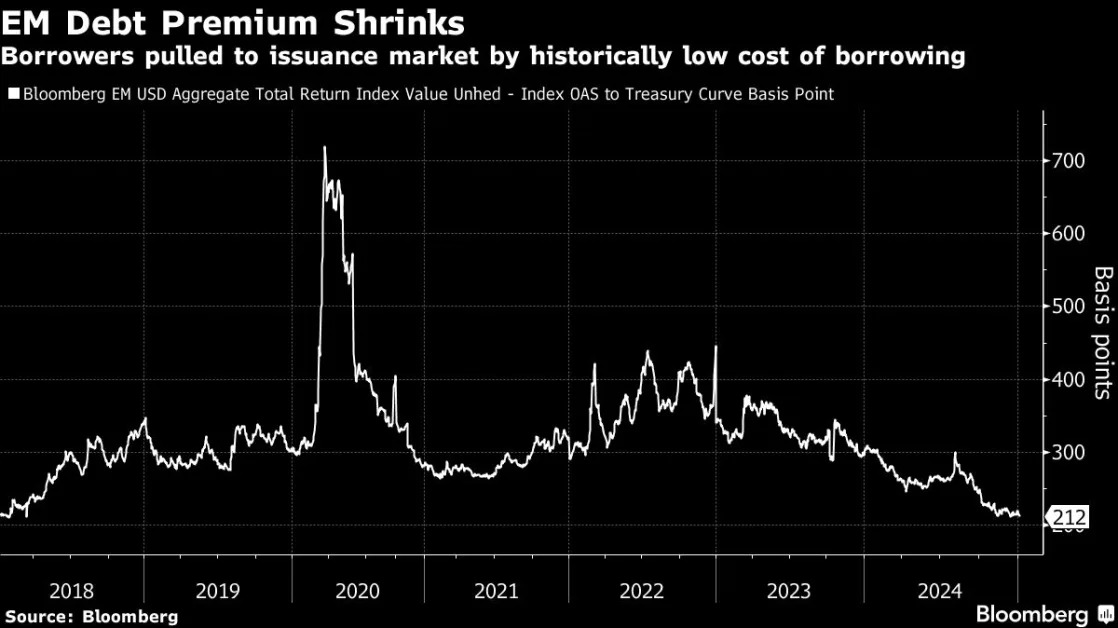By Shankar Ramakrishnan
(Reuters) - U.S. President Donald Trump's tariffs brought U.S. investment-grade bond issuance to a screeching halt this week, but market stress had already been apparent over the past month as jittery investors pushed back on pricing, some bankers said.
Since Trump imposed sweeping tariffs on U.S. imports on Wednesday, no new bonds have been priced by investment-grade companies.
The halt in offerings followed a period last month when, for the first time since the pandemic, companies struggled to issue bonds at the price they wanted, several bond syndicate bankers said.
In some cases, bankers said, investors unusually withdrew millions of dollars in orders for some bonds as books were being built on new U.S. investment-grade bonds, because the final pricing was worse than they expected. To their surprise, the bankers said, investors were changing their minds midway at a higher-than-normal rate.
The investor pushback has not been previously reported.
"Investors are dropping out of some deals even if they are priced only one or two basis points tighter than where they want it to be," said Teddy Hodgson, global co-head of fixed income capital markets at Morgan Stanley.
During the book-building process, when banks seek out bids, Hodgson said it is "an unwritten norm" that pricing levels can change 20 to 25 basis points.
A senior syndicate banker at a large U.S. bank, who requested anonymity to speak candidly, said for some March bond offerings, as much as 60% of the orders were canceled as pricing levels tightened. Before March, a 10-15% order drop rate was considered healthy, the banker said.
Bankers declined to specify bond deals that were affected.
The investor pushback shows how Trump's trade war has been affecting market dynamics in recent weeks, as a prolonged trade war is expected to slow growth and weigh on corporate bonds.
After Trump's tariff announcement on Wednesday, Treasury bond yields have plunged while spreads are widening.
On Thursday, ICE BAML investment-grade index spreads, or the premium investors charge over Treasuries, widened 10 basis points in the largest such move since the U.S. regional banking crisis in 2023, BMO strategist Daniel Krieter wrote in a note.
High-grade index spreads are at their widest levels since August, Krieter said.
The demand for more compensation to buy new corporate bonds was merely to protect investment returns which have already been hurt by the recent widening of spreads, said bankers.
Morgan Stanley's Hodgson said in a normal market, 85% to 90% of new issues tend to outperform the broader market, but today's range is more like 30% to 40% as worries about a recession push yield spreads wider.
Companies are already changing strategies to minimize deal execution uncertainty, said Richard Wolff, head of U.S. bond syndicate at Societe Generale CIB.
"Some companies that are infrequent issuers of bonds are starting to use investor marketing in an attempt to garner pre-deal interest before announcing a new bond offering."





